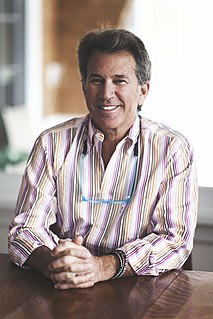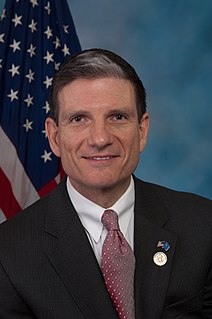A Quote by Gordon Brown
If our economies are to flourish, if global poverty is to be banished, and if the wellbeing of the world's people enhanced - not just in this generation but in succeeding generations - we must make sure we take care of the natural environment and resources on which our economic activity depends.
Related Quotes
Bolivia also depends not only on tin and other minerals, but also depends on the gas and oil. A rational extraction should be made, taking care of the environment. We should give added value to this natural resource, and generate revenue to fight poverty with more resources, that come from natural resources.
I believe that to meet the challenge of our times, human beings will have to develop a greater sense of universal responsibility. We must all learn to work not just for our own self, family, or nation but for the benefit of all humankind. Universal responsibility is the key to human survival. It is the best foundation for world peace, the equitable use of natural resources, and through concern for future generations, the proper care of the environment.
The proper goal of an economic democracy agenda is to replace the global suicide economy ruled by rapacious and unaccountable global corporations with a planetary system of local living economies comprised of human-scale enterprise rooted in the communities they serve and locally owned by the people whose wellbeing depends on them.
The vision behind our idea is a world where people don't carry hazardous chemicals in their bodies, the environment is free of toxic pollutants, and the economy diligently conserves its natural resources for consumers and future generations. We want to make it easier for consumers to create this world through their purchasing decisions and everyday activities.
It is evident that many wars are fought over resources which are now becoming increasingly scarce. If we conserved our resources better, fighting over them would not occur ... protecting the global environment is directly related to securing peace. Those of us who understand the complex concept of the environment have the burden to act. We must not tire, we must not give up, we must persist.
As long as we place millions of Indians at the canter of our thought process, as long as we think of their welfare, their future, their opportunities for self realization we are on the right track. For India can grow, prosper, flourish only if they grow, prosper, flourish. We cannot grow by any esoteric strategies. Our purchasing power, our economic strength, our marketplace all depends on the prosperity of our people.
Sustainability is an economic state where the demands placed upon the environment by people and commerce can be met without reducing the capacity of the environment to provide for future generations. It can also be expressed in the simple terms of an economic golden rule for the restorative economy: Leave the world better than you found it, take no more than you need, try not to harm life or the environment, make amends if you do.
The national park idea has been nurtured by each succeeding generation of Americans. Today, across our land, the National Park System represents America at its best. Each park contributes to a deeper understanding of the history of the United States and our way of life; of the natural processes which have given form to our land, and to the enrichment of the environment in which we live.
Our environment, the world in which we live and work, is a mirror of our attitude and expectations. If we feel that our environment could stand some improvement, we can bring about that change for the better by improving our attitude. The world plays no favorites. It's impersonal. It doesn't care who succeeds and who fails. Nor does it care if we change. Our attitude toward life doesn't affect the world and the people in it nearly as much as it affects us.
For decades we have been living lives of abundance, with little regard for our natural resources or global health. But we are now facing hard choices in our energy policy. Future generations - my children and grandchildren, along with yours - will have to live with the decisions we make today. And so it is time for us to make some tough and - hopefully - smart choices regarding our energy use and production before it is too late.
If we've learned any lessons during the past few decades, perhaps the most important is that preservation of our environment is not a partisan challenge; it's common sense. Our physical health, our social happiness, and our economic well-being will be sustained only by all of us working in partnership as thoughtful, effective stewards of our natural resources.
































